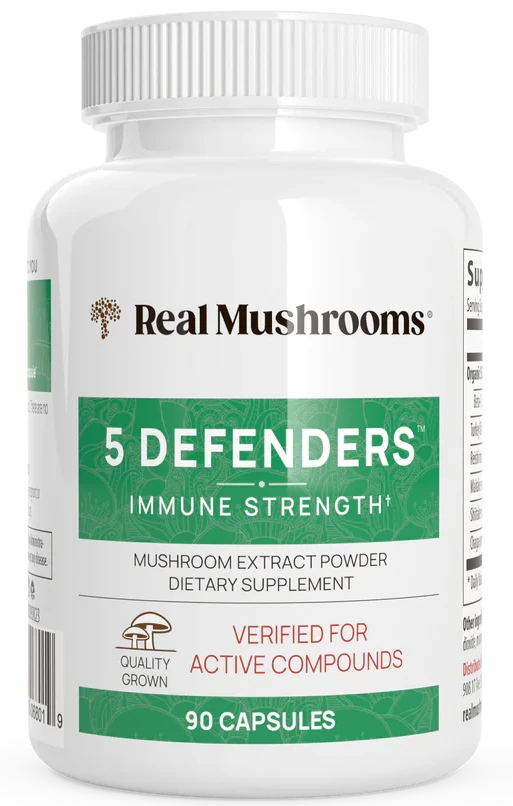Herpes and Diet: What You Need to Know
There is no definitive cure for the virus, but thankfully its symptoms, such as cold sores, only appear sporadically.
The frequency and severity of these symptoms can be influenced by various factors, including stress and diet.
Certain foods can enhance your immune system and inhibit HSV, while others may instigate outbreaks.
A well-balanced diet can help manage the virus by boosting the immune system and reducing the frequency of outbreaks.
Please do note that while diet can help manage the symptoms of herpes, it cannot eliminate the virus from the body.
That said, a healthy diet can help strengthen the immune system, making it easier for the body to keep the virus in check.
This websites contains affiliate links. As part of the Amazon Associates program, we may earn from qualifying purchases.
Recommended Foods
While diet alone neither causes nor cures herpes, it can significantly affect the symptoms.
The herpes simplex virus (HSV) relies on certain substances in the body to propagate, and the foods we consume can influence the availability of these substances.
Foods with a high lysine-arginine ratio, such as dairy, meat, fish, and poultry, are recommended for managing herpes.
Lysine is an amino acid that inhibits the availability of arginine in the body, a substance that the virus feeds on.
The more lysine in your diet, the less arginine is available to the virus to propagate.
Certain medicinal mushrooms, seaweed, and garlic may also help fight infections due to their potent antibacterial properties.
These foods contain compounds that can inhibit the growth of various types of bacteria and viruses, including HSV.
It's also beneficial to include foods rich in antioxidants and vitamins, such as fruits and vegetables, in your diet.
Antioxidants help protect your cells from damage, while vitamins are essential for various bodily functions.
These nutrients can help boost your immune system and fight off infections, making it harder for the virus to cause an outbreak.
Foods to Avoid
When managing herpes, it's advisable to avoid foods high in arginine.
Arginine is an amino acid that the herpes virus needs to replicate and cause outbreaks.
Foods such as nuts and chocolate are high in arginine and can potentially trigger herpes outbreaks.
Another dietary consideration is the intake of sugar, deep-fried food, and processed meats.
These foods can cause inflammation in the body, weakening the immune system and making it easier for the virus to cause an outbreak.
Therefore, these should be limited in your diet.
Opting for whole wheat over white rice and wheat is another good strategy to maintain a balanced diet.
Whole grains are packed with fiber, which can help keep your immune system strong and prevent outbreaks.
Acidic foods like citrus and tomatoes should be consumed in moderation.
While these foods are generally healthy, they can potentially trigger herpes outbreaks in some people due to their acidity.
Beverages like coffee, alcohol, and soft drinks are best avoided.
These drinks can dehydrate you and weaken your immune system, making it easier for the virus to cause an outbreak.
Instead, opt for hydrating beverages like water and herbal teas.
Supplements for Herpes Management
Regular intake of lysine supplements can help prevent herpes outbreaks and shorten the duration of symptoms once they appear.Other supplements that might help manage herpes include vitamin C, zinc, probiotics, and some type of medicinal mushrooms.
Vitamin C and zinc can boost the immune system, while probiotics can promote a healthy gut, which is crucial for a strong immune system.
That said, it is important to remember that supplements should not replace a healthy diet but should be used in conjunction with it.
While diet alone cannot prevent herpes outbreaks, it plays a significant role in managing the condition.
A balanced diet, rich in essential nutrients and vitamins, can help strengthen the immune system, which is crucial in fighting off the herpes simplex virus (HSV).
Regular exercise, adequate sleep, and stress management techniques, along with a healthy diet, can help reduce the frequency and severity of herpes outbreaks.
By leading a healthy lifestyle and maintaining a strong immune system, individuals with herpes can lead a fulfilling and healthy life.
Herpes and Diet FAQs
Lysine and arginine are two types of amino acids.
Lysine is known to inhibit the replication of the herpes simplex virus (HSV), while arginine can promote it.
Therefore, a diet high in lysine and low in arginine can help manage herpes outbreaks.
This is because lysine competes with arginine for absorption in your intestines, making less arginine available for the virus to use in replicating.
What should I eat with herpes?
A diet high in lysine and low in arginine can help inhibit the herpes simplex virus (HSV).
This is because lysine can block the arginine in your body, which the virus needs to replicate.
Some good food choices to make that are high in lysine and low in arginine include dairy products like milk and cheese, fish such as salmon and cod, poultry like chicken and turkey, and also certain fruits and vegetables such as mangoes, apricots, pear, apple, tomatoe, and bell peppers.
Additionally, supplements like Vitamin C, probiotics, and zinc can also be beneficial.
Vitamin C is known to boost the immune system, probiotics can help maintain a healthy gut flora, and zinc is essential for immune function.
What foods should I avoid with herpes?
Foods high in arginine, such as nuts and chocolate, should be avoided as they can potentially trigger herpes outbreaks.
Additionally, sugar, deep-fried food, processed meats, and acidic foods like citrus and tomatoes should be limited.
Beverages like coffee and soft drinks with high amounts of caffeine or sugar are best avoided, and so is alcohol.
These foods and drinks can cause inflammation and weaken your immune system, making it easier for the virus to cause an outbreak.
What are the best supplements for herpes?
Your go-to supplement for managing herpes outbreaks and preventing cold sores should be L-Lysine.
Some people find that some types of medicinal mushroom supplements may also help.
Additionally, Vitamin C, probiotics, and zinc can be beneficial.
Vitamin C can boost your immune system, probiotics can help maintain a healthy gut flora, and zinc is essential for immune function.




